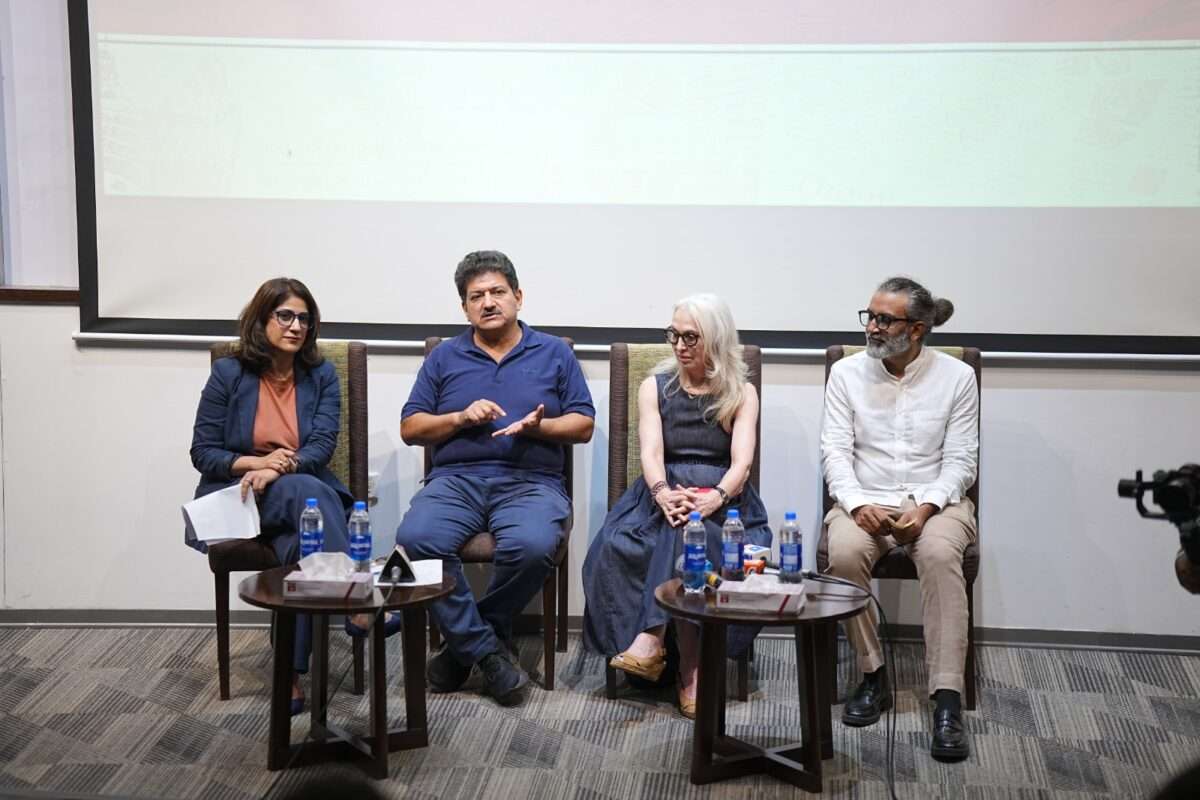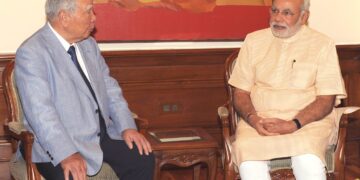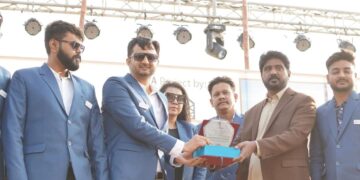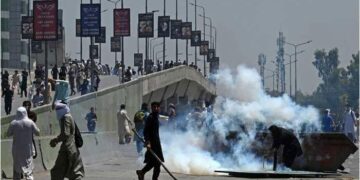Renowned journalist Hamid Mir emphasizes the importance of ‘independent judiciary’, ‘strong
democracy’ and their links to ‘free media’.
Karachi, June 14, 2024: Pakistan can’t survive without strong democracy, strong democracy can’t
survive without free media and free media can’t survive without independent judiciary, stated
renowned journalist Hamid Mir during a panel discussion in a seminar titled ‘Media and
Democracy: An Essential Partnership’. Mr. Mir – who has covered conflicts in Afghanistan, Iraq,
Syria, Lebanon, and Kashmir, among others – is known for his fearless reporting and analysis as well
as his commitment to press freedom.
The seminar was held at the Centre for Excellence in Journalism, Institute of Business
Administration (CEJ-IBA) in collaboration with the School of Economics and Social Sciences
(SESS), IBA and in partnership with Free Press Unlimited. The event brought together
distinguished journalists to discuss the critical role that media plays in sustaining and enhancing
democratic values.


In his keynote speech, Dr. S Akbar Zaidi, Executive Director, IBA Karachi, laid emphasis on the
importance of free media, calling it ‘a fundamental component of democracy’, and adding that
“Democracy requires a free and transparent media where journalists and reporters can speak the truth
to those who hold power and public office”.
“All elected and unelected representatives of the people need to be held accountable for their actions;
hence a free media is a prerequisite and essential component of democracy,” said Dr. Zaidi.
Lamenting the ‘stifled and muzzled’ state of media in Pakistan, where journalists are not free to
report what they see, facts, interpretations and opinions, Dr. Zaidi stated, “While we continue the
ritual of elections, the formal subsumption of democracy is a long way away. Unless the media is
free, there can be no democracy in Pakistan. This is non-negotiable.”
Adil Jawad, a seasoned journalist with over 20 years of experience in the field, highlighted the
rampant impunity in cases of journalist murders, pointing out that it is ‘the absolute norm in
Pakistan’. However, he added, “As journalist murders and impunity continue apace, willing actors
that are committed to fighting impunity are not planning to sit by idle.”
Discussing a new coalition in the works which aims to unite civil society against such impunity in
the country, Mr. Jawad said, “We are laying important pieces of a puzzle at the moment. If we are
able as civil society to engage with the authorities, we have a chance to finally decrease impunity
rates in the murders of journalists.”
Ms. Lynne O’Donnell – one of the panelists, who spent many years as a foreign correspondent –
talked about the unlimited availability of information online. She stated, “There has never been so
much information available — we are drowning in a rising sea of words, photos, videos, blogs,
vlogs, podcasts, social media, misinformation, disinformation, artificial intelligence, and
propaganda.”
In her opinion, while ‘journalism, apparently, is thriving, the space for good journalism is shrinking’.
Ms. O’Donnell pointed out, “Our integrity as journalists, and the veracity of our work are
persistently and consistently undermined.” She further said that “Our challenge is to redefine our
purpose for a brave new world that needs journalism – meaningful, informative, trustworthy
journalism that holds power to account without fear or favor – more than ever.”
Amber Rahim Shamsi, who has 20 years of experience in journalism, moderated the discussion. She
highlighted the global impact of populism, the takeover of news distribution by social media
platforms, and new technologies on journalism. She termed the seminar ‘an opportunity to
understand the future of journalism in these tumultuous times in both the global and Pakistani
contexts and chart a solution’.

















